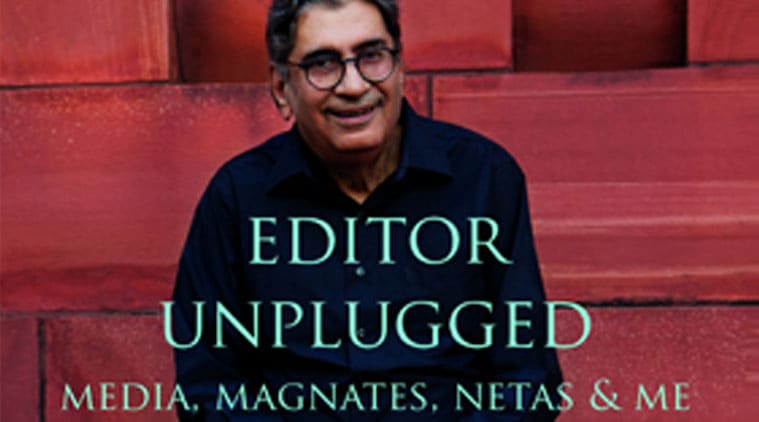The Lucknow Boy Returns
In the sequel to his autobiography, Vinod Mehta brings the world of the media to life with a refreshing lack of tact
 Mehta divides the human race into the affably humorous and the successfully humourless.
Mehta divides the human race into the affably humorous and the successfully humourless.
Book: Editor Unplugged
Author: Vinod Mehta
Publishers: Penguin
Pages: 304
Price: Rs 599
Noted editor and self-made pseudo-secularist Vinod Mehta’s sequel to his autobiography, Lucknow Boy, gets to the newspoint in the very last chapter: “First the good news. There will be no sequel to the sequel.” Pity. With Editor Unplugged, he was really getting into the swing of the genre, which has produced some appallingly boring work in India. Mehta, on the contrary, brings his world to life with refreshing lack of tact. Kapil Sibal “writes bad poetry (he is in good company, so did Vajpayee) on his mobile.” Arun Jaitley “is hung up on upward political mobility and, possibly, the biggest gossip in Delhi.” P Chidambaram’s “rudeness and arrogance” were apparently visible long ago, in the late Nineties. The book does meander a bit, but it traverses interesting territory and comments freely on the natives. They will not be pleased.
Mehta divides the human race into the affably humorous and the successfully humourless. “My list of humour casualties: Sarojini Naidu, Feroze Gandhi, Piloo Mody and more recently, Mani Shankar Aiyar and Shashi Tharoor.”
Strangely, Ashis Nandy, his friend and neighbour in Delhi’s Nizamuddin East, is passed over, though he is still in court for introducing black humour to the Jaipur Literature Festival in January 2013.
The humourless successes: “One name that immediately comes to mind is Pranab Mukherjee. He is the quintessential politician-bore. AK Antony is not far behind.” They have competition from “Jawaharlal Nehru, Lal Bahadur Shastri, Vallabhbhai Patel, Morarji Desai, Indira Gandhi, VP Singh, IK Gujral, Deve Gowda, Chandrashekhar, Charan Singh, Narasimha Rao, Sonia Gandhi, Manmohan Singh…”Hacks reading Editor Unplugged could soon be fed up with such honour rolls of boringness, which are routinely made up over the third drink at the Press Club. But Mehta’s book will interest the general reader because while writing as an editor, he reacts to the crisis of confidence in the media as Everyman: “When the history of the Indian media is written it can safely be divided into pre-Radia and post-Radia eras.” He breaks ranks with his high-minded peers in his attitude to the second oldest profession: “…if you remove gossip from journalism, you say goodbye to 50 per cent of journalism as it is today. Much of journalism, the good, the bad and the ugly, begins as gossip.”
“Niira [Radia] managed to mesmerise two men, Ratan Tata and Mukesh Ambani, in that order,” writes Mehta. Very
true, and long before that, Arundhati Roy had mesmerised him and N Ram of The Hindu, in no particular order. They launched her as a political commentator with a global following by publishing her in unison, starting with a delayed reaction to the Pokharan II nuclear tests. Editor Unplugged has an exhaustive defence of Roy, presenting her as authentic because when she is not in Delhi, she is in Dantewada or Gadchiroli or some other place where the trains never run on time. The defence is misplaced since Roy’s commitment has never been in doubt. The problem was her disproportionate projection by editors of English media, which urged readers, especially those overseas, that her voice was exclusively authentic and articulated the last word on everything.
Mehta does take determined positions, usually propelled by human concerns: “The sanctimonious humbug uttered by the Bombay film industry and shifty politicians after Thackeray’s death sickened me. They were paying ‘homage’ to a man who singlehandedly vitiated the cosmopolitan character of Mumbai and communalised the city of dreams.”
He declares his allegiance to a former colleague who became the shame of Delhi’s elite. “When the Tarun Tejpal scandal broke, after one bruising experience (with Arnab Goswami), I stayed away from TV debates. I knew I wouldn’t be able to lie about my fondness for Tarun, who had been my deputy at Outlook for seven years.” The same elite has gone back to hugging Tejpal, now that he is home in the capital.
Vinod Mehta’s memoir has drawn to a close, and the tag of editor of Debonair still cling to him. It’s incredibly sticky.
He had taken over the publication in 1974 on a salary of Rs 2,000, plus Rs 500 in expenses (or Rs 2,500 and Rs 200 in expenses, reported many chapters later). He launched five important publications after that — Sunday Observer, Indian Post, The Independent, The Pioneer (Delhi) and Outlook — but Debonair remains the favourite stick for his enemies to beat him with. It’s almost like in the movies where, once you have taken off your clothes, it is proverbially impossible to put them on again. Debonair repeatedly surfaces in Editor Unplugged, which brings to life its drama — the editor in his cabin surrounded by hot metal compositors, with single-colour Heidelberg machines running off cyan, magenta, yellow and black impressions painfully slowly, one ink at a time. There is betrayal, too: all those centrefolds were hippie chicks holed up in Stiffles Hotel, because no one else in Bombay would take off their clothes for Rs 250. Mehta’s revelation is a cruel blow, but those who grew up with Debonair must emerge stronger for it.
- 01
- 02
- 03
- 04
- 05



























